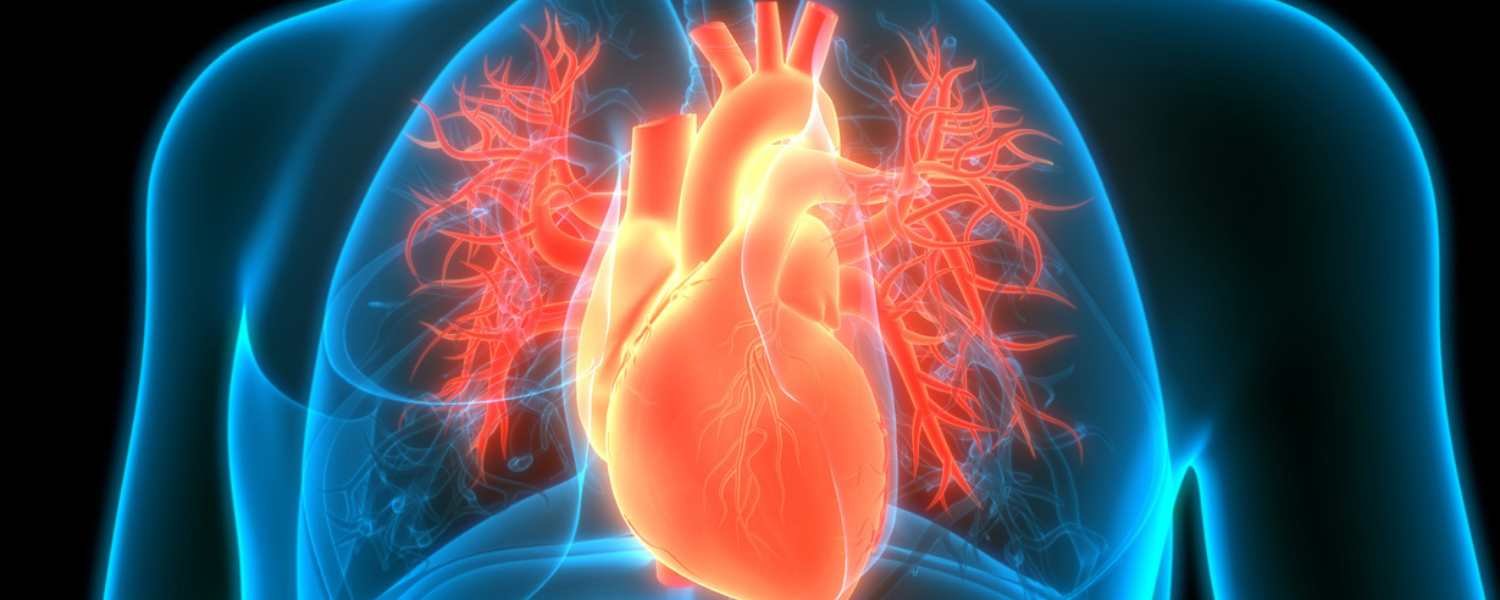Your cart is currently empty!
Heart damage resulting from drug abuse poses a significant threat to individuals’ overall health and well-being, transcending age, gender, and socio-economic backgrounds.
Recognizing the signs and symptoms of heart problems induced by drug abuse is paramount for early intervention and effective treatment.
The manifestations of drug-induced heart damage encompass a spectrum of symptoms, ranging from irregular heart rhythms to compromised cardiac function.
Identifying these warning signs promptly can make a life-saving difference, highlighting the urgent need for awareness and vigilance in combating substance abuse-related heart complications.
If left unchecked, these signs of heart damage from drugs can escalate into severe cardiovascular conditions, emphasizing the critical importance of seeking professional help and support for those struggling with substance abuse issues.
What are the signs of heart damage from drugs?

Heart damage from drug abuse is a serious concern that can manifest in various ways, affecting individuals of all ages and backgrounds.
Understanding the signs and symptoms of heart problems resulting from drug abuse is crucial for early intervention and treatment.
Signs of heart damage from drugs encompass a range of symptoms, including arrhythmia (abnormal heart rhythm), Decreased cardiac oxygenation due to reduced blood flow, cardiomyopathy (heart muscle diseases), ineffective heart muscle contractions, and heart muscle cell death.
These indicators may present differently depending on the substance involved and the individual’s health.
Common symptoms of heart damage from drug abuse include chest pain, irregular heartbeat, heart attack, stroke, fluctuating blood pressure, shortness of breath, dizziness, and heart palpitations.
If you or someone you know experiences these symptoms, seeking urgent medical assistance is imperative.
Drug-induced heart damage can have severe consequences, leading to heart failure and even death if left untreated.
Early detection and intervention significantly improve the prognosis for individuals experiencing heart problems due to drug abuse.
By being aware of the signs and symptoms outlined above, individuals can take proactive steps to address potential heart damage from drug abuse and seek the necessary medical attention to safeguard their cardiovascular health.
Remember, your heart’s well-being is invaluable; timely action can make a life-saving difference.
Drug Addiction’s Impact on Heart Health

Sure, here’s the text with each line separated after a period:
Substance abuse isn’t just about the immediate risks like overdoses; it also poses severe threats to heart health.
The signs of heart damage from drugs may not always be obvious, but they’re critical to recognize.
Heart failure due to drug abuse is a growing concern in healthcare, with more individuals experiencing heart problems from drugs than ever before.
The impact of drugs on heart health is multifaceted.
Stimulants like cocaine and methamphetamine can cause irregular heart rhythms, high blood pressure, and even heart attacks with prolonged use.
Opioids, on the other hand, depress the central nervous system, leading to a slow heart rate; by nurturing comprehension and enacting preemptive actions, we can culminate in heart failure.
Even seemingly harmless substances like alcohol and marijuana can wreak havoc on the heart when abused.
Overconsumption of alcohol can impair the strength of the heart muscle over time, leading to conditions like cardiomyopathy, while Marijuana consumption has been associated with a heightened likelihood of experiencing heart attacks and strokes.
Recognizing the signs of heart damage from drugs is crucial for early intervention and prevention of further complications.
Manifestations like chest discomfort, breathlessness, irregular heartbeat, and swelling in the legs can indicate underlying cardiac issues necessitating immediate medical attention.
Heart drugs alone cannot reverse the damage caused by substance abuse.
Instead, a comprehensive approach involving medical intervention, therapy, and lifestyle changes is necessary to mitigate the effects of drug-induced heart damage and promote long-term cardiovascular health.
By raising awareness about the dangers of substance abuse on heart health, we can take proactive steps towards preventing heart-related complications in vulnerable populations.
Which drugs can elevate the risk of heart damage, and what are the underlying reasons?

Heart health is paramount, yet certain drugs, both prescription and illicit, pose severe threats to the cardiovascular system.
Understanding the signs of heart damage from drugs is crucial for safeguarding overall well-being.
Signs of Heart Damage from Drugs
A. NSAIDs: Common pain relievers like ibuprofen and naproxen, known as NSAIDs, can elevate sodium and water levels in the blood, imposing stress on the heart and blood vessels.
Individuals with heart failure history or symptoms should avoid NSAIDs.
B. Anthracyclines: Used in cancer treatment, anthracyclines induce long-term oxidative stress, irreversibly damaging heart cells and escalating risks with higher doses.
C. Thiazolidinediones: Diabetes medications like pioglitazone and rosiglitazone can exacerbate heart failure by causing water retention and weight gain.
D. Stimulants: Drugs such as cocaine and methylphenidate elevate blood pressure and directly harm heart cells, potentially leading to heart failure.
1. Heart Failure Due to Drug Abuse
The abuse of certain substances can precipitate heart failure, either through direct damage or exacerbating underlying conditions.
Drugs like cocaine not only increase blood pressure but also directly impair heart function, posing significant risks.
2. Heart Problems from Drugs:
From nonsteroidal anti-inflammatory drugs to stimulants, various medications can instigate heart problems.
Understanding these risks empowers individuals to make informed choices about their health and medication usage.
3. Navigating Heart Drugs:
While medications are essential for managing various health conditions, it’s crucial to be vigilant about potential side effects, especially concerning heart health.
Consulting healthcare professionals for guidance and monitoring is paramount to mitigate risks.
Recognizing signs of heart damage from drugs early on can also aid in timely intervention and management of any adverse effects.
Types of heart failure or damage

Drug-induced heart damage is a severe concern, manifesting in various forms that can lead to heart failure if left unaddressed.
Identifying signs and grasping types of heart damage from drugs are crucial for timely intervention and prevention.
Recognizing the signs of heart damage from drugs is essential for ensuring prompt medical attention and minimizing long-term complications.
1. Signs of Heart Damage from Drugs: Identifying signs of potential heart damage from drugs is vital for early detection and intervention.
Symptoms may include persistent fatigue, shortness of breath, swelling in the lower limbs, abdomen, or organs, and irregular heartbeat.
Any such signs should prompt immediate medical attention to mitigate further damage.
2. Types of Heart Failure Due to Drug Abuse: Drug abuse can result in different types of heart failure, including left-sided and right-sided failure.
Left-sided heart failure compromises the heart’s ability to pump blood efficiently to the body, while right-sided failure hampers the transport of deoxygenated blood to the lungs.
Both types significantly strain the heart muscles, necessitating prompt intervention to prevent further deterioration.
3. Heart Problems from Drugs: Systolic and Diastolic Heart Failure Drug-induced heart damage can lead to systolic or diastolic heart failure.
Systolic heart failure arises when the heart muscles cannot contract effectively, impairing blood pumping.
On the other hand, diastolic heart failure arises from stiffened heart muscles, hindering proper ventricular filling.
Understanding these distinctions is crucial for tailored treatment approaches.
Vigilance regarding the signs of heart damage from drugs and awareness of the various types of heart failure they can induce are essential for safeguarding cardiovascular health.
Timely identification and intervention can markedly enhance results.
And prevent irreversible complications.
Can your heart recover from drug use?

Drug abuse doesn’t just impact the mind and body; it can take a significant toll on the heart, leading to various heart problems and even heart failure.
Recognizing the signs of heart damage from drugs is crucial for seeking timely intervention and treatment.
Heart damage from drug abuse can manifest in different ways, from weakened heart muscles to irregular heart rhythms like atrial fibrillation.
The extent of the damage is contingent upon variables such as the type of drug used, the duration of abuse, and individual health conditions.
For instance, cocaine abuse can lead to permanent heart failure resulting from the deterioration of the heart muscle.
However, the good news is that many heart conditions resulting from drug abuse are treatable, and recovery is possible, mainly when intervention occurs early.
When individuals seek help for drug abuse, they not only address their addiction but also take a significant step toward healing their hearts.
Quitting drugs and alcohol allows the heart to begin its recovery process, offering hope for a healthier future.
It’s essential to understand that seeking help for drug abuse is not just about overcoming addiction; it’s also about reclaiming one’s health and well-being.
With proper medical intervention and support, individuals can embark on the journey to recovery and give their hearts a chance to heal.
Treatment

Are you aware of the concealed danger looming behind substance abuse? Heart damage from drug abuse remains a significant concern, yet it often goes unnoticed until it’s too late.
Recognizing the signs of heart problems from drugs is crucial for timely intervention and treatment.
Myths about Addiction Heart failure due to drug abuse can manifest in various ways, often mimicking other health issues.
Cardiac discomfort, erratic pulse, and breathlessness may indicate underlying heart damage.
It’s imperative not to overlook these warning signs, primarily if you or someone you know is engaged in drug use.
Understanding the implications of heart drugs is essential for mitigating risks associated with substance abuse.
Treatment approaches typically involve a multifaceted strategy tailored to individual needs.
Lifestyle modifications, including regular exercise and weight management, are pivotal in restoring cardiac health.
Depending on the seriousness of the condition, medical interventions such as medications, surgical procedures, implantable devices, or even transplants may be necessary.
Additionally, addressing the root cause by discontinuing the harmful drug is paramount in preventing further damage and promoting recovery.
By shedding light on the signs of heart damage from drugs, we can empower individuals to prioritize their cardiovascular health and seek timely assistance.
Let’s work together to safeguard our hearts and emancipate ourselves from the clutches of substance dependency.
Prevention

Drug addiction poses a multifaceted and far-reaching challenge, impacting both mental and physical well-being and often resulting in severe consequences such as drug-induced heart damage.
Those grappling with drug addiction face an increased likelihood of encountering detrimental effects on their cardiovascular health, ranging from heart failure to various cardiac complications.
Identifying the indications of heart damage stemming from drug addiction is crucial for early intervention and the mitigation of further harm.
One of the key strategies to prevent drug-induced heart failure is to steer clear of illegal substances, especially stimulants.
Harm reduction practices, such as using lower doses or reducing drug use frequency, can also mitigate risks.
However, it’s not just illicit drugs that can harm the heart.
Even prescribed medications can have adverse effects, underscoring the importance of discussing all medications with a healthcare provider.
Individuals at risk of heart failure should prioritize heart health by adopting a heart-healthy lifestyle.
This includes maintaining a moderate weight, abstaining from smoking, limiting trans fat intake, consuming a balanced diet, and engaging in regular physical activity.
Moreover, those with underlying health conditions like diabetes or high blood pressure should work closely with their doctor to manage their condition effectively.
By taking proactive and informed steps, individuals can safeguard their hearts against drug-induced damage and prioritize their overall well-being.
Always keep in mind that proactive measures are essential in protecting your heart from the harmful effects of drugs.
Conclusion
Drug addiction poses a multifaceted and far-reaching challenge, impacting both mental and physical well-being and often resulting in severe consequences such as drug-induced heart damage.
Those grappling with drug addiction face an increased likelihood of encountering detrimental effects on their cardiovascular health, ranging from heart failure to various cardiac complications.
Addressing these issues requires a holistic approach that encompasses not only medical interventions but also focuses on promoting overall health & wellness.
Identifying the indications of heart damage stemming from drug addiction is crucial for early intervention and the mitigation of further harm.
One of the key strategies to prevent drug-induced heart failure is to steer clear of illegal substances, especially stimulants.
Harm reduction practices, such as using lower doses or reducing drug use frequency, can also mitigate risks.
However, it’s not just illicit drugs that can harm the heart.
Even prescribed medications can have adverse effects, underscoring the importance of discussing all medications with a healthcare provider.
Individuals at risk of heart failure should prioritize heart health by adopting a heart-healthy lifestyle.
This includes maintaining a moderate weight, abstaining from smoking, limiting trans fat intake, consuming a balanced diet, and engaging in regular physical activity.
Moreover, those with underlying health conditions like diabetes or high blood pressure should work closely with their doctor to manage their condition effectively.
By taking proactive and informed steps, individuals can safeguard their hearts against drug-induced damage and prioritize their overall well-being.
Always keep in mind that proactive measures are essential in protecting your heart from the harmful effects of drugs.
